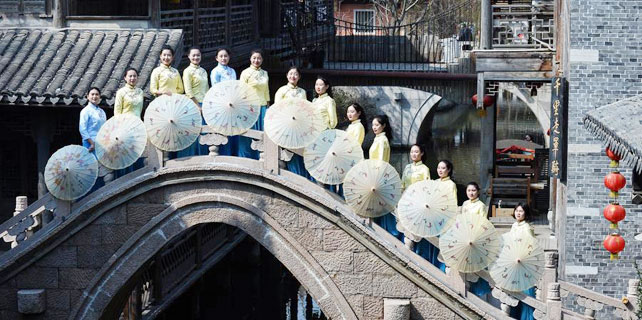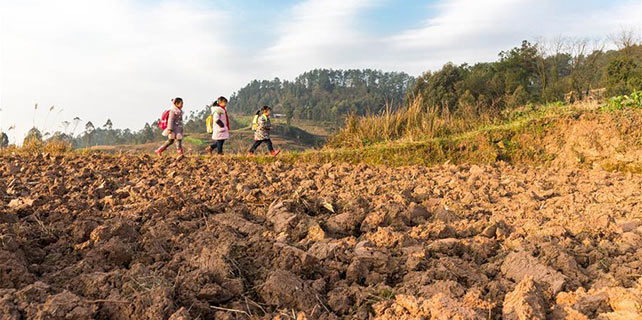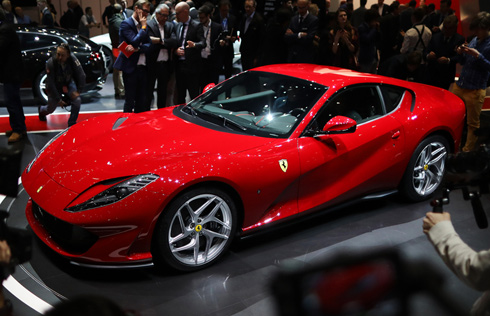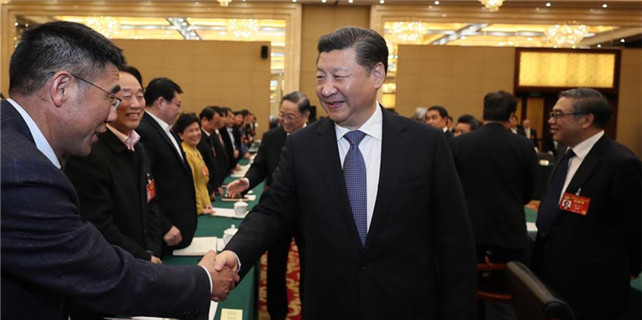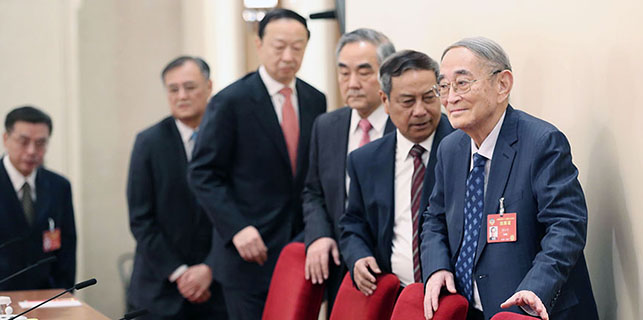China's Belt and Road Initiative 'great enabler' of sustainable development: IPU chief
UNITED NATIONS — China's Belt and Road Initiative is "a great enabler of sustainable development" by unlocking potential of countries and creating appropriate environments, said Saber Chowdhury, the president of the Inter-Parliamentary Union (IPU) Tuesday.
"By focusing on connectivity and cooperation amongst countries across geographical regions," the initiative represents "a very timely and unique opportunity" for the participating countries to reduce infrastructure gaps, as well as to stimulate and accelerate economic prosperity by triggering investment and creating job opportunities, Chowdhury told Xinhua in a written interview.
"It is a win-win proposition for all," said Chowdhury, adding that "I also regard it in essence as an eloquent and practical expression of an important cornerstone of China's foreign policy, that of the Five Principles of Peaceful Coexistence."
The Belt and Road Initiative was proposed by China in 2013 and aims to become a trade and infrastructure network connecting Asia with Europe and Africa along ancient trade routes.
On the role the IPU and parliaments can play in advancing the Sustainable Development Goals (SDGs), officially known as the 2030 Agenda for Sustainable Development, Chowdhury said the IPU was fully engaged in the process of defining the SDGs.
The SDGs are 17 goals adopted by all UN member states in September 2015 to guide the world's development till 2030.
A series of IPU assemblies, as well as the Fourth World Conference of Speakers of Parliament held at the United Nations headquarters shortly before the adoption of the SDGs, have "focused on the SDGs and refined our inputs," he said, noting that the National People's Congress of China has been actively contributing to the work of the IPU in this regard and others.
"Having been so closely involved in shaping and defining the SDGs, the IPU and national parliaments now have a great responsibility and opportunity in implementing the SDGs and ensuring the people have a future they deserve and aspire to - a brave new world where none is left behind," said the president.
The SDGs represent a global vision for the world and have set goals, targets and indicators in regard to where people want to be in 2030. However, it is for each country to establish, based on its own realities, a road map that will help reach the destination, Chowdhury said.
"National ownership of the SDGs is critical for its success and the IPU has been encouraging national parliaments to take resolutions in support of implementing the SDGs."
Chowdhury said a big challenge that confronts national parliaments is capacity and ability to deliver. China, for its part, has offered to help enhance capacity of parliaments in some developing countries in Asia and Africa.
To help parliaments to assess how "fit for purpose" they are in implementing the goals in their own country, the IPU, together with the United Nations Development Program (UNDP), has developed a toolkit.
The toolkit is designed to help parliaments identify all the means and processes available to them, as well as the institutional gaps that need to be filled. "I think this is a great resource and I am upbeat that it will be made full use of," said Chowdhury.
The IPU president said that there have been a number of regional initiatives and events around the world with an aim to mobilize parliaments and lawmakers to support the implementation of the SDGs. One of the most recent was the South Asian Speakers' Summit on SDGs, which was held in Indore, India last month.
Further events will continue to be held in different parts of the world, including in Africa, said Chowdhury.
The IPU, established in 1889, is the international organization of parliaments. It fosters contacts, coordination and exchange of experience among parliaments and parliamentarians of all countries.
Chowdhury is a senior Bangladeshi parliamentarian who also has extensive experience in inter-parliamentary relations. He took office in October 2014 as the IPU's 28th president.
- Leaders from over 20 countries to attend Belt and Road Initiative forum in Beijing
- NDRC: China's investment to Belt and Road countries exceeds $50b
- Belt and Road projects ideal for Western firms
- New growth momentum builds as Belt and Road Initiative develops
- Maintaining the Momentum: Building on Year One of the SDGs







